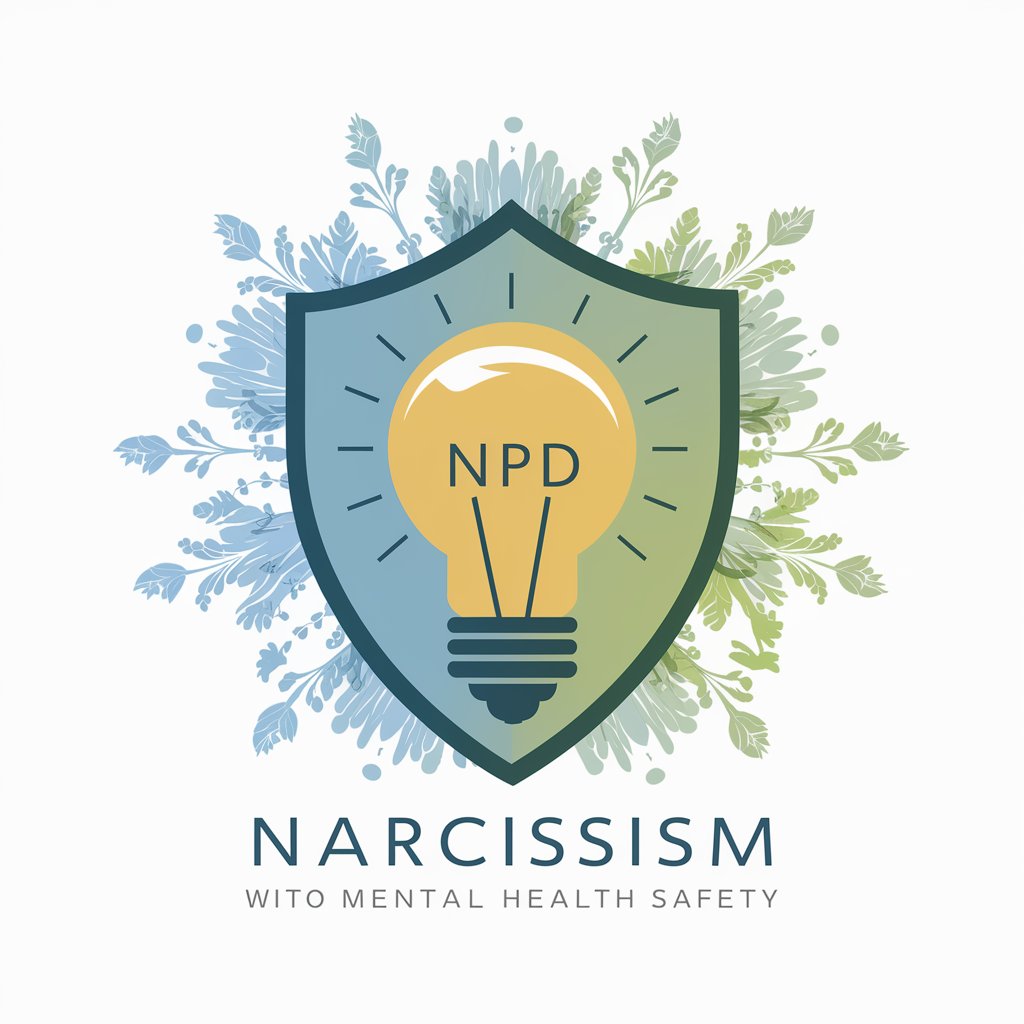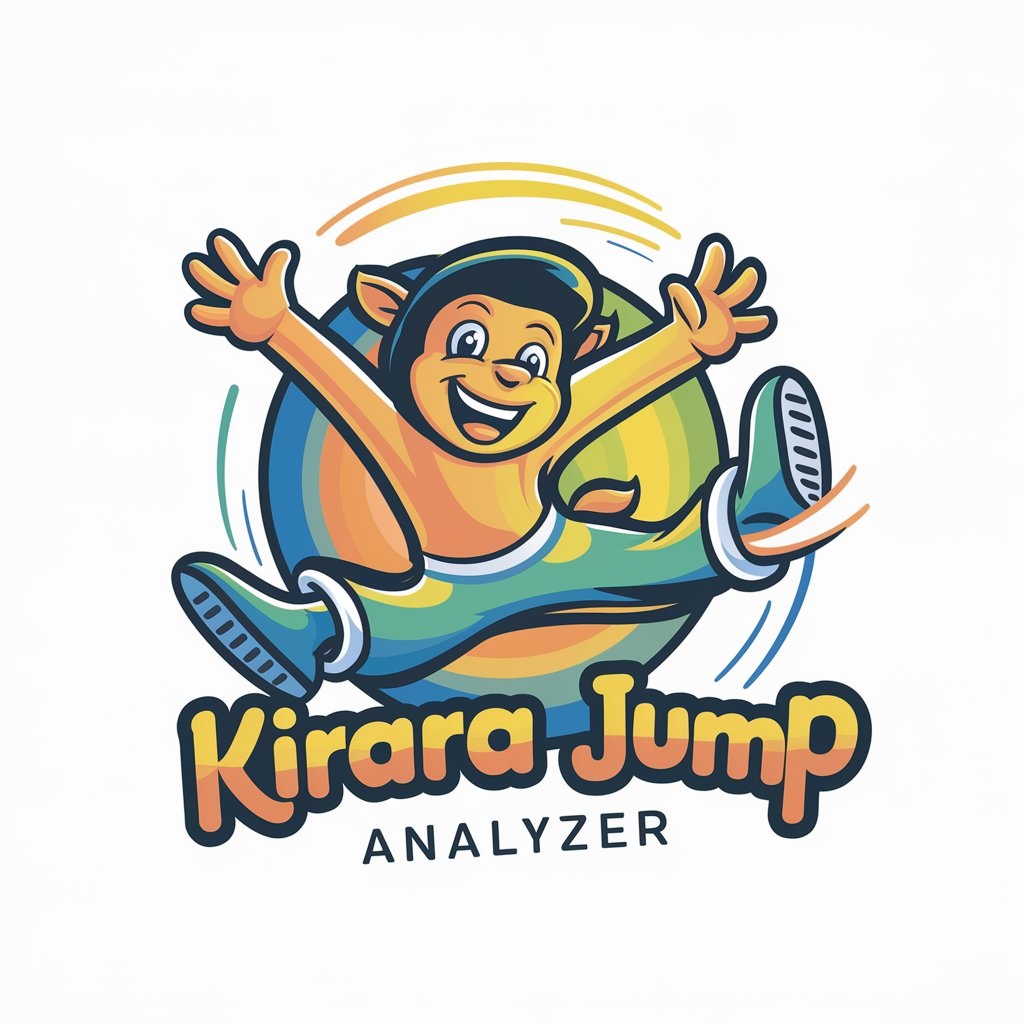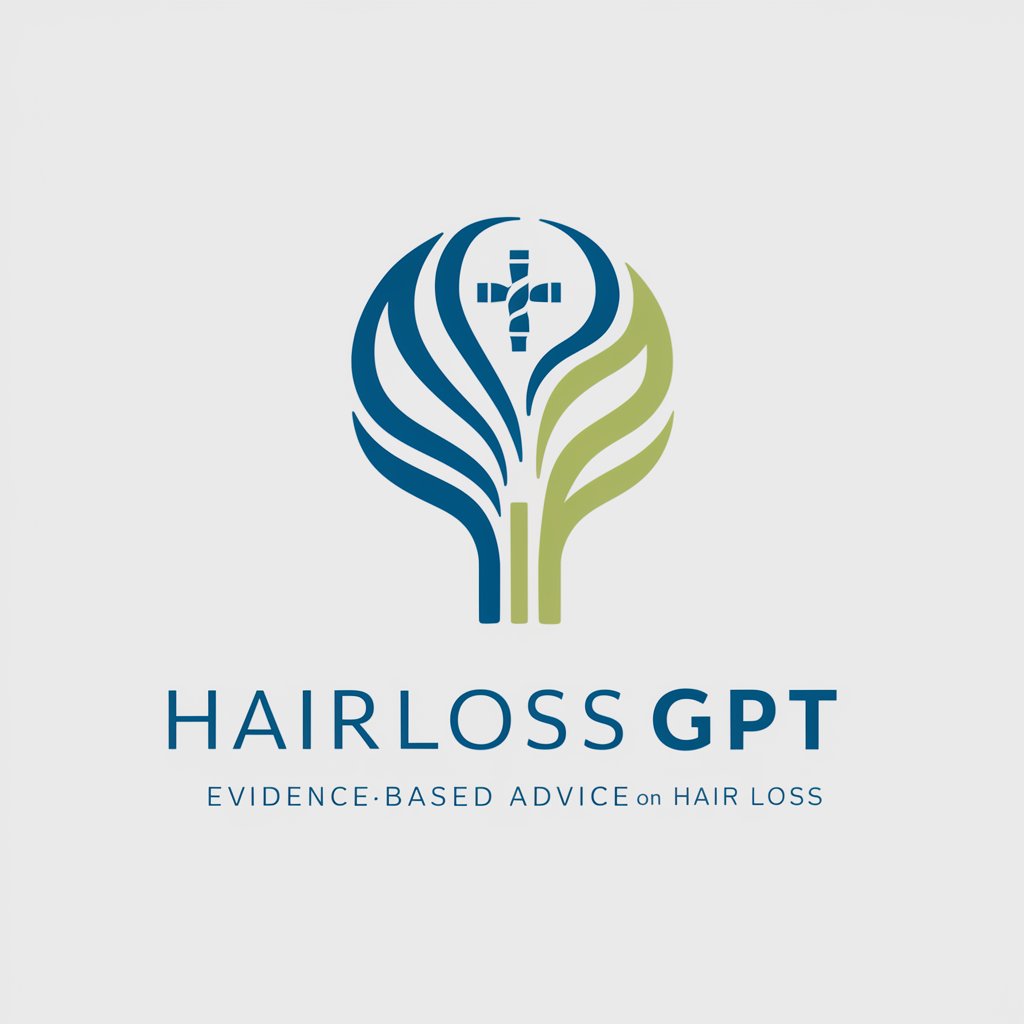Narcissists (Knowledge of NPD & Safety Strategies) - NPD Knowledge & Safety Tips

Welcome! Let's explore the complexities of narcissism together.
Empowering Understanding of Narcissism with AI
What are the primary symptoms of Narcissistic Personality Disorder?
How can you identify a covert narcissist in a relationship?
What strategies can help maintain mental health when dealing with a narcissist?
Can you explain the impact of narcissistic behavior on family dynamics?
Get Embed Code
Understanding Narcissists (Knowledge of NPD & Safety Strategies)
Narcissists (Knowledge of NPD & Safety Strategies) is designed as an educational tool with the primary goal of enhancing understanding and awareness around Narcissistic Personality Disorder (NPD). Through comprehensive knowledge dissemination, it equips users with the insights needed to identify, interact with, and manage relationships involving narcissistic individuals. By employing leading questions and offering a structured exploration of topics, it creates an engaging learning environment. For example, it may introduce a scenario where an individual exhibits a high level of self-importance and a lack of empathy, prompting users to consider how these traits align with NPD characteristics, followed by discussions on coping strategies for those affected by such behaviors. Powered by ChatGPT-4o。

Core Functions and Real-World Applications
Educational Engagement
Example
Using quizzes to stimulate curiosity about NPD, like asking users to identify behaviors indicative of narcissism based on real-life scenarios.
Scenario
In a support group setting, a facilitator uses the tool to present scenarios and quizzes to members, enhancing their understanding of NPD's impact on relationships.
Providing Coping Strategies
Example
Outlining safety strategies for individuals dealing with narcissistic abuse, including setting boundaries and seeking support.
Scenario
A therapist recommends the tool to a client struggling with a narcissistic partner, using it to explore and practice boundary-setting techniques.
Myth Debunking
Example
Correcting common misconceptions about NPD, such as the belief that narcissists are always confident or successful.
Scenario
During a workshop on mental health, a presenter uses the tool to explain the vulnerabilities and insecurities often hidden behind narcissistic behaviors.
Target User Groups for Narcissists Services
Mental Health Professionals
Therapists, counselors, and psychologists can leverage this tool to enrich their understanding of NPD, enhance therapeutic strategies for clients affected by narcissistic behaviors, and provide more informed support.
Individuals in Relationships with Narcissists
People experiencing narcissistic abuse or those in close relationships with individuals showing narcissistic traits can benefit from the tool's insights into coping mechanisms, boundary setting, and emotional self-care.
Educators and Support Group Facilitators
These users can integrate the tool into their educational materials or support group discussions to provide accurate information about NPD and facilitate a deeper understanding of the disorder among participants.

How to Use Narcissists (Knowledge of NPD & Safety Strategies)
1. Start Your Journey
Visit yeschat.ai for a free trial, offering immediate access without the need for login credentials or subscribing to ChatGPT Plus.
2. Explore Topics
Navigate through the platform and select the Narcissists (Knowledge of NPD & Safety Strategies) option to begin exploring information on Narcissistic Personality Disorder and safety strategies.
3. Engage with the Content
Utilize the leading questions feature to deepen your understanding of NPD, its symptoms, impacts, and treatment options. Feel free to ask any specific questions you have.
4. Apply What You Learn
Use the knowledge gained to identify NPD traits in relationships or academic studies, and apply the safety strategies in real-life situations.
5. Continuous Learning
Regularly revisit the platform to stay informed about new insights and strategies for dealing with NPD, enhancing your understanding over time.
Try other advanced and practical GPTs
The Bachmind
Empowering Decisions with Humanities' Wisdom

Storycraft
Crafting Your Child's Dreamland Tales

Kirara Jump Analyzer
Elevate your art with AI-powered Kirara Jump analysis.

Mickey Cartoon Character
Empowering Artists with AI-Driven Cartoon Design

Positive Reframing
Turn negatives into positives with AI!

Javascript Resource
Elevate Your Code with AI-Powered Javascript Insights

Investment Banking Technicals Assistant
AI-powered investment banking expertise

HairLossGPT
AI-powered Hair Loss Solutions

Life Coach Crates
Empowering self-discovery with AI

Steeler Nation AI
Elevate Your Steelers Fandom with AI

GptOracle | The Windows Systems Administrator
Elevating Windows Systems Integrity

Life Coach
Empower Your Journey with AI Coaching

Detailed Q&A About Narcissists (Knowledge of NPD & Safety Strategies)
What is Narcissistic Personality Disorder?
Narcissistic Personality Disorder (NPD) is a mental condition characterized by a long-term pattern of exaggerated self-importance, a deep need for excessive attention and admiration, troubled relationships, and a lack of empathy for others. However, behind this mask of extreme confidence lies a fragile self-esteem that's vulnerable to the slightest criticism.
How can I identify a narcissist?
Identifying a narcissist involves recognizing key traits such as a grandiose sense of self-importance, a preoccupation with fantasies of unlimited success, power, brilliance, beauty, or ideal love, a belief that they are special and unique, a need for excessive admiration, a sense of entitlement, exploitative behavior in relationships, lack of empathy, envy of others or a belief that others are envious of them, and arrogant or haughty behaviors or attitudes.
What are some safety strategies for dealing with narcissists?
Safety strategies include setting firm boundaries, avoiding emotional engagement, using a technique called 'gray rock' to become emotionally non-responsive and uninteresting to the narcissist, seeking support from friends, family, or professionals, and focusing on your own mental and emotional well-being.
Can Narcissistic Personality Disorder be treated?
Yes, NPD can be treated through psychotherapy, also known as talk therapy. Treatment focuses on learning skills to better relate to others in healthier ways, understanding the causes of emotions, and what drives the need to compete or undermine others. Success varies and depends on the individual's willingness and commitment to change.
How can Narcissists (Knowledge of NPD & Safety Strategies) assist in academic writing?
This tool can assist in academic writing by providing detailed, accurate information about NPD for research papers, essays, and projects. It offers insights into the disorder's symptoms, impacts, treatment options, and contemporary research findings, helping students and academics craft well-informed, nuanced discussions on the subject.
